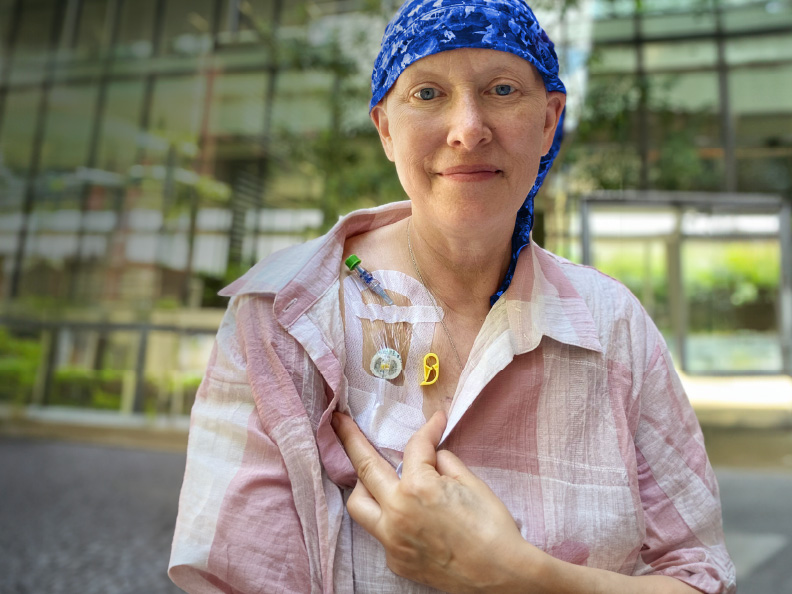Your gift is 100% tax deductible
Mammograms After Breast Cancer Surgery
Nearly all women with breast cancer will have surgery at some point as part of their treatment.
The American Cancer Society does not have specific guidelines for mammograms or other breast imaging in women who have been treated for breast cancer. But there is information available about what most women will probably need to do after surgery.
Do I need a mammogram after breast cancer surgery?
There are many different kinds of breast cancer surgery. The type of surgery you have will affect if you need to get mammograms in the future.
- If you had breast-conserving surgery (BCS), you will still need to get mammograms of the treated breast.
- If you had a mastectomy, you most likely won't need a mammogram of that breast.
Getting mammograms on your untreated breast
If you had surgery (of any type) on only one breast, you will still need to get mammograms of the other breast. This is very important, because women who have had breast cancer have a higher risk of developing a new cancer in the other breast.
Mammograms after breast-conserving surgery
Most experts recommend that women who have had breast-conserving surgery (BCS, sometimes called a partial mastectomy or lumpectomy) get a mammogram of the treated breast 6 to 12 months after radiation treatment ends. Surgery and radiation both cause changes in the skin and breast tissues that will show up on the mammogram, which might make it harder to read.
The mammogram done at this time serves as a new baseline for the affected breast. Future mammograms will be compared with this one, to help the doctor check on healing and look for signs that the cancer might have come back (recurred).
Follow-up mammograms of the treated breast are typically done at least yearly after that, but some doctors may recommend that you have mammograms more often. You will still need to have routine mammograms on the other (untreated) breast as well.
Mammograms after mastectomy
Women who have had a mastectomy (including simple mastectomy, modified radical mastectomy, and radical mastectomy) to treat breast cancer should not need further routine screening mammograms on that side, but will still need regular mammograms on the remaining breast.
If both breasts have been removed (a double or bilateral mastectomy), mammograms should no longer be needed because there shouldn't be enough breast tissue left to do a mammogram. Cancer might come back in the skin or chest wall on that side, but if this happens it is usually found by feeling it (either during a physical exam or a breast self-exam).
It’s possible for women with reconstructed breasts to get mammograms, but experts agree that women who have breast reconstruction after a simple, modified radical, or radical mastectomy don’t need routine mammograms of the affected breast(s).
Still, if an area of concern is found during a physical exam on a woman who has had breast reconstruction, a diagnostic mammogram and breast ultrasound may be done. Breast MRI may also sometimes be used to look at the area closely if the mammogram and ultrasound results aren't clear.
For women who have had a nipple-sparing mastectomy, also called a subcutaneous mastectomy, some doctors might recommend follow-up mammograms because some breast tissue can be left behind under the nipple.
If you're not sure what type of mastectomy you had or if you need to get mammograms, be sure to ask your doctor.
- Written by
- References

The American Cancer Society medical and editorial content team
Our team is made up of doctors and oncology certified nurses with deep knowledge of cancer care as well as editors and translators with extensive experience in medical writing.
Khatcheressian JL, Hurley P, Bantug E, Breast cancer follow-up and management after primary treatment: American Society of Clinical Oncology clinical practice guideline update. J Clin Oncol. 2013;31(7):961-965.
Nahabedian M. Overview of breast reconstruction. UpToDate. 2021. Accessed at https://www.uptodate.com/contents/overview-of-breast-reconstruction on October 4, 2021.
National Comprehensive Cancer Network. NCCN Clinical Practice Guidelines in Oncology. Breast Cancer. Version 2.2021. Accessed at www.nccn.org/professionals/physician_gls/pdf/breast.pdf on October 4, 2021.
Ruddy KJ, Partridge AH. Approach to the patient following treatment for breast cancer. UpToDate. 2021. Accessed at https://www.uptodate.com/contents/approach-to-the-patient-following-treatment-for-breast-cancer on October 4, 2021.
Venkataraman S, Slanetz PJ. Breast imaging for cancer screening: Mammography and ultrasonography. UpToDate. 2021. Accessed at https://www.uptodate.com/contents/breast-imaging-for-cancer-screening-mammography-and-ultrasonography on October 4, 2021.
Last Revised: January 14, 2022
American Cancer Society medical information is copyrighted material. For reprint requests, please see our Content Usage Policy.
American Cancer Society Emails
Sign up to stay up-to-date with news, valuable information, and ways to get involved with the American Cancer Society.



